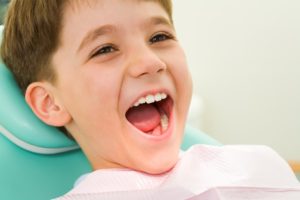
DENTAL CARE FOR CHILDREN
We often underestimate how important is to look after our children's teeth. Good dental care begins before you give birth to ensure your teeth and gums are healthy. Bacteria can transfer between mother and uterus leading to complications during in pregnancy. Once the child is born, one of the most common pitfalls is when we lick a soother or a spoon before giving it to a child and thus transfer bacteria.
When to brush
Teeth begin to form in the second trimester of pregnancy. Just because we can't see them it doesn't mean they aren't there! A good routine should start even before a baby's first tooth appears. We should massage the baby s gums with a clean damp washcloth not only to get rid of any harmful bacteria but also to give the baby relief from teething. After all, with toothbrushing it's about developing a good habit that will stay with children for life and prevent them from unnecessary toothache and future complications.
Fluoride
Once the baby s teeth erupt we can start using an infant toothbrush with a smear of fluoride toothpaste (0-3 years) and a pea-size amount for age 3+. Encourage your child to brush their teeth twice a day for 2 minutes. Never wet the toothbrush with water and to get the maximum benefits from the fluoride toothpaste encourage the child to spit the residue and never rinse their mouth after brushing. Fluoride does not harm but it prevents decay and keeps teeth healthy. London water doesn t have fluoride added to it so you need to make sure your child s toothpaste contain a minimum 1000 parts per million (ppm) for under 3 s, and for older children and those at risk of decay, 1450ppm.
Toothbrushes and flossing
The best toothbrushes, whether electric or manual, should always be medium texture bristles with a small head to reach the back teeth and as their manual dexterity doesn t develop until 6-8 years, children should be supervised until they are 7 years old. From the age of 8 children can use an alcohol-free fluoride mouthwash and as soon as their adult teeth start erupting (age 6) or when they are close together you can teach them to floss.
Weaning and snacking
Encourage your child to drink from a cup from the age of 6 months and try not to use the bottle after your child turns one. Savoury foods and snacks should be introduced first and especially in between meals and at bedtime children should avoid sugary food and drinks. Especially with the upcoming summer holiday season the amount and especially the frequency of sugary foods and drinks should be reduced. Best to include the sugary foods/drink within your child s meal and whenever possible always give sugar free medicine.
First check up
We encourage you to bring your child to the dentist as soon as their first teeth come through or whenever you have your own visit. That will allow them to get used to new surroundings: the dental chair, the light, the sounds and thus they are likely to have less fear about going when they get older. From the age 2-3 years your child can have their first gentle polish with our hygienist and we can show them how to brush their teeth in a playful way and show parents where your child is not brushing effectively and how to correct this.
Babies teeth are very important as they hold on to the space for the adult teeth. First adult molars will erupt at around age 6 and will stay for the rest of their life, so definitely worth looking after!
If you have any questions regarding your child's oral health or should you wish to book an appointment with our dentist or hygienist please contact the surgery on 020 7731 1162.
Article written by Beata Knysak Dental Therapist at Progressive Dentistry, Fulham, London
Looking after your teeth at a young age is vital- after all teeth should last a life time!

